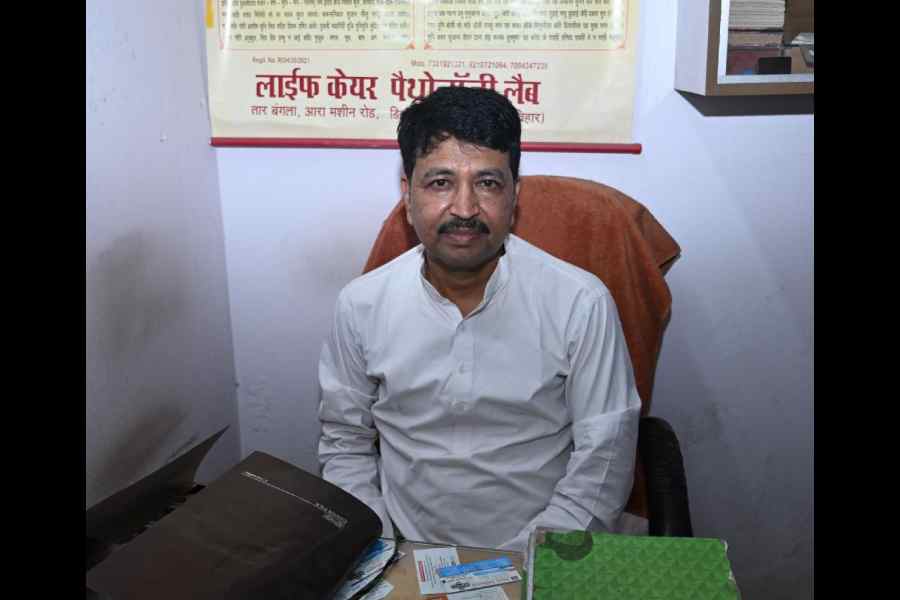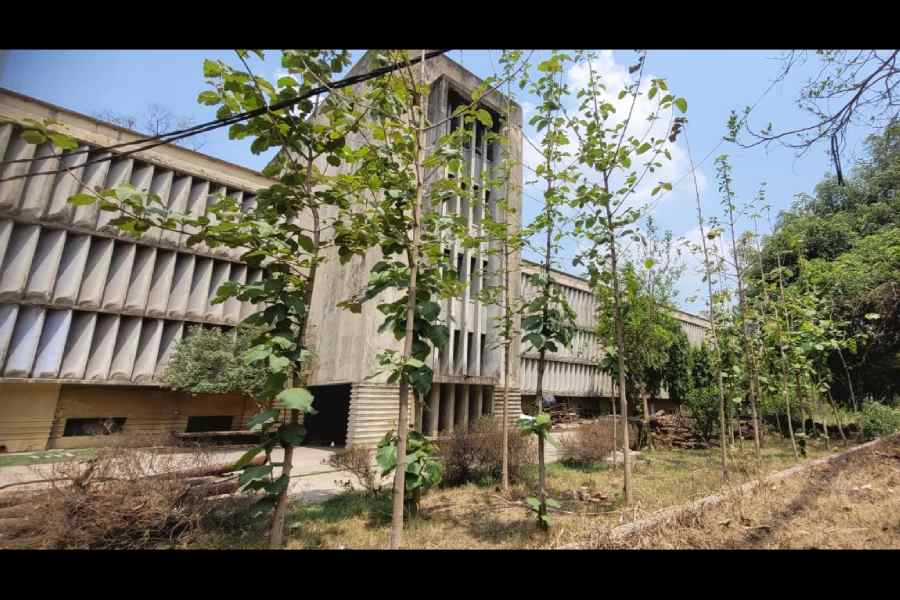One of India’s oldest industrial towns, Dalmianagar is like a ghost nobody wants to see
or mention. But it lurks around the Karakat Lok Sabha constituency in Bihar, making its presence felt during elections, leaving contestants uncomfortable.
Bihar today rues the lack of industries, but this industrial town was set up in 1933, when entrepreneur Ramkrishna Dalmia, founder of the erstwhile Dalmia Group, selected the spot for a sugar factory as it was close to the Grand Trunk Road, a railway line and the Sone.
Sir Sultan Ahmad, freedom fighter and barrister, laid the foundation stone.
There was no looking back. The place boomed as factories to manufacture cement, paper, chemicals, asbestos, steel and vegetable oil came up. Netaji Subhas Chandra Bose inaugurated a cement factory here in 1938, while Rajendra Prasad opened the paper-manufacturing unit for a boost to “swadeshi” efforts. The industrial town, spread over 3800 acres, had over 22,000 people working in its factories.
But degeneration started in the early 1970s — due to politics, trade and labour unionism, poor work culture, mismanagement, crime, dacoity, caste violence and Naxalism. Ramkrishna Dalmia died in 1978. and by 1984 all the factories shut down bringing Dalmianagar to a standstill.
Today, this is a deserted town with crumbling buildings. Politicians have reaped votes in the last 40 years, promising to revive industries, but are now wary of even mentioning this ghost town lest people remember the unfulfilled promises.
“So many politicians promised so much about reviving Dalmianagar, but did nothing. Upendra Kushwaha, who won here in 2014 and became a Union minister, was one of them,” said 67-year-old Jitendra Kumar Singh, whose father was a senior
security officer in the industrial town of its heydays.

Homeopath Arvind Kumar in Dehri Sanjay Choudhary
“But it is not just Upendra’s fault. The BJP government has no policy for industrial revival or growth. Instead of talking about establishing factories, it talks about selling them to select industrialists.”
Dalmianagar used to be a part of Bikramganj Lok Sabha seat, abolished after the 2008 delimitation. Now, it comes under Karakat.
Kushwaha, Rashtriya Lok Morcha founder and NDA member, is pitted against CPI-ML’s Raja Ram Singh (INDIA bloc). The fight was expected to be tough, though slightly tilted towards Upendra, going by caste equations. But Bhojpuri artiste Pawan Singh’s entry into the poll fray as an Independent can skew the numbers.
“Dalmianagar is a heavyweight issue not only for Karakat but for entire Bihar,” said homeopathic doctor Arvind Kumar with a practice in Dehri. “However, it has not become an issue in the ongoing polls, neither for the NDA nor INDIA. This is surprising because unemployment is at its extreme.”
The BJP had previously selected Pawan as a candidate from Asansol, but was forced to withdraw his name due to the anger that erupted in Bengal due to his vulgar songs. Yearning to enter the poll field, he came to Karakat.
Pawan is from the Rajput caste and apart from its support, is also expected to attract young voters of other castes, who follow his songs.
“Two types of theories are doing the rounds in the political circles here about Pawan’s candidature. One, senior RJD leaders are propping him up to ensure INDIA gets the
seat and Upendra is finished. Two, a top leader of the
BJP wants to stop him (Upendra) from emerging as a leader of the Kushwaha caste,” says Dehri’s Raman Kumar Kushwaha.
Pawan’s candidature has come as a bolt from the blue for Upendra, leaving him unsettled.
“My fight is with INDIA and its candidate. The NDA is united and we are fighting the polls together. Pawan can just cut a few votes,” Upendra told The Telegraph before clamming up over the matter.
These turn of events has shifted the poll spotlight and Dalmianagar has been again relegated to the sidelines. Even Prime Minister Narendra Modi did not mention anything about its revival at his public rally in Dehri last Saturday.
Kushwaha mentioned Dalmianagar for the first time this poll season on Monday as a last-ditch effort to salvage his position, since Pawan’s entry.
CPI-ML’s Raja Ram, who has twice been an MLA from the Obra Assembly segment, has chosen to focus on agriculture, the plight of farmers, and the poor shape of the Sone river canal system built by the British in the 1860s and 1870s.
But then, voters in the constituency are faced with inflation, corruption and poor reach of welfare schemes, which are not being discussed by any of the 13 candidates
in the fray.
“I was thinking of voting for Narendra Modi because members of my family get 5kg of foodgrains per month and we also got a house under the Indira Awas Yojana (now called Pradhan Mantri Awas Yojana). But a leader of my caste pointed out that the prices of all the things have become so high that they are becoming unaffordable. He says there will be more mehangai (inflation) if Modi comes again. This has left me thinking,” said Jamuna Pasi, 73, an orchard caretaker in Baank village of Akorhi Gola block in the constituency.
Karakat votes on June 1











